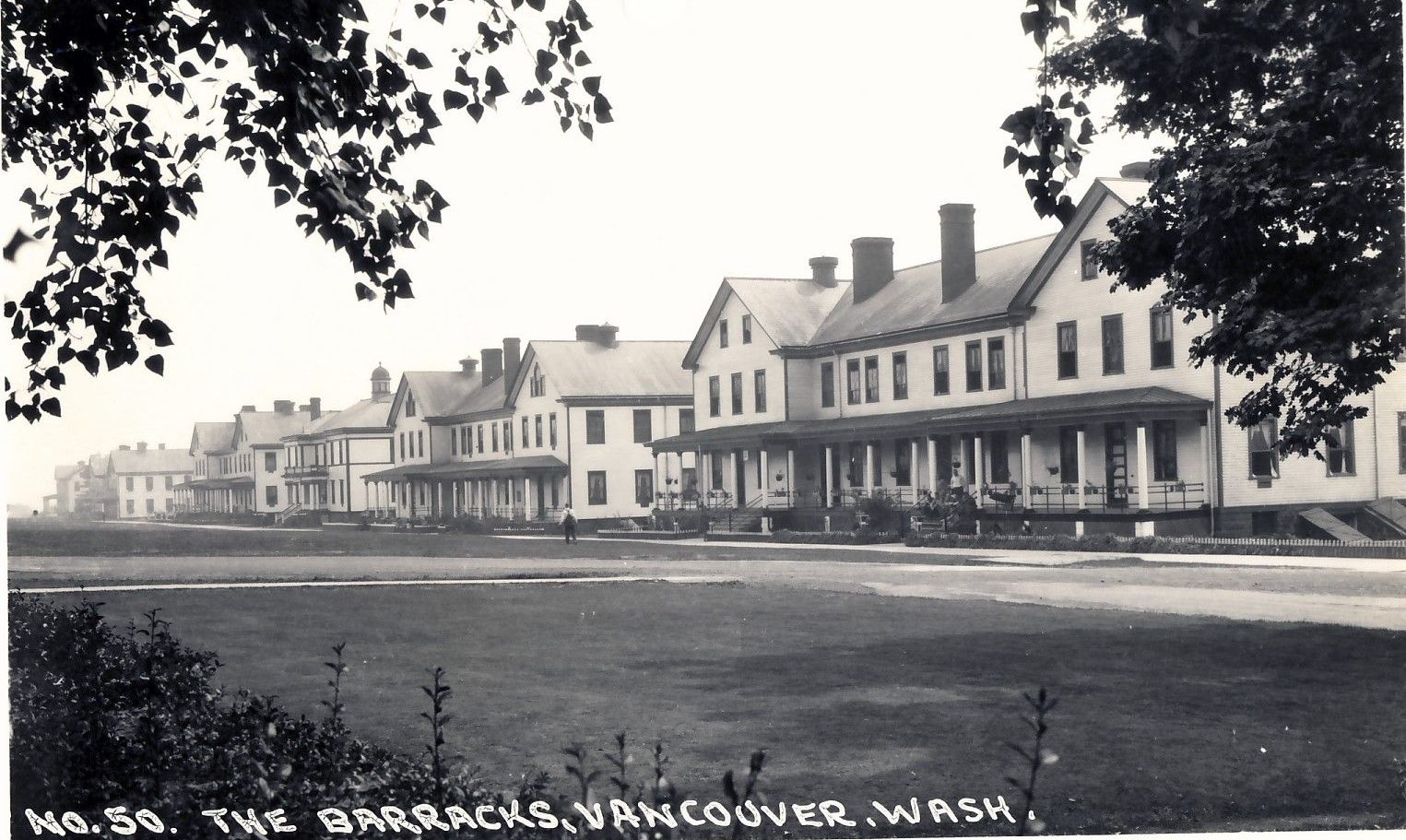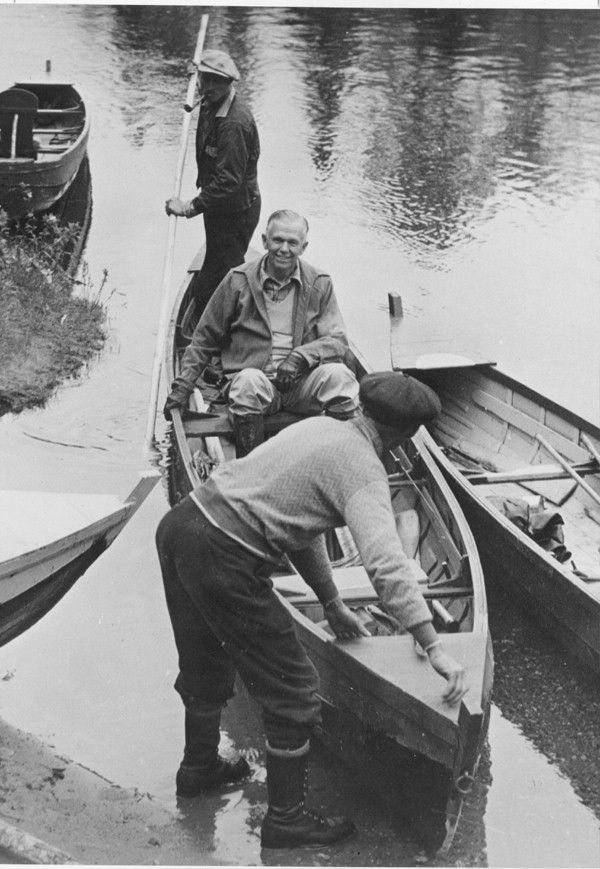It is difficult to imagine Marshall as inhabiting anything but the no-nonsense, resolute persona of his professional life. This image is so pervasive that we are commonly asked if he ever smiled at all. The Marshall Foundation archives house documents and photos that reveal the General’s personal life, including his lighter side.
In a 1957 interview with Marshall biographer Forrest C. Pogue, Brigadier General Claude M. Adams shared “many stories of the General’s thoughtfulness and kindness.” Adams was Marshall’s aide at Ft. Screvin, Ft. Moultrie, and Vancouver Barracks in the 1930s, then served as military attaché to Brazil during WWII.

Vancouver Barracks, Washington, where Claude M. Adams and Marshall both served in the late 1930s.
For anyone with the unwavering, stoic image of Marshall lodged in their mind, the interview takes an unexpected turn when Adams reminisces about a few good-natured pranks between him and the General. According to Adams, at an award ceremony at Vancouver Barracks, Marshall “called Adams forward and began to say wonderful things” and gave him a watch. Adams recalled: “I was choked up. When I went back, Mrs. Marshall leaned over and said ‘Before you get too excited over the watch he gave you, look at it.’” The General had merely given Adams his own watch.
Later in the interview notes, Pogue reveals Adams’ revenge:

An avid angler, Marshall embarks on a fishing trip in Quebec on June 22, 1943.
“Adams told of getting even with Gen Marshall once on a fishing trip in Tennessee. Gen Marshall caught a sucker. Adams told him it was a white trout–very fine to eat. Persuaded the hotel man to go along with the gag. Gen Marshall insisted on having it cooked. Hotel man later told Adams he almost had to fire his cook to get him to cook it. Adams had to help eat it.”
Their closeness is further revealed in a letter Marshall wrote on May 11, 1944 as Adams recuperated from a heart ailment in Nashville, Tennessee. Although Adams’ time as attaché to Brazil had been complicated by his worsening heart condition, he had been assigned as attaché to Canada in April. Affectionately addressing Adams as “Flap,” Marshall made the decision to relieve Adams:
“[…] I am unwilling to be a party to a third assignment which I am told will lead to another attack.
[…] I am sorry about this because I know you will be greatly disappointed. However, there is no doubt in my mind as to what my decision should be.
Hastily yours,
George C. Marshall”
Adams‘ heart condition led to his retirement in 1944, and sadly led to his death in 1958. Pogue wrote that “It is clear that…Adams is a close friend.” His story reveals a tender, playful side to Marshall that is often overlooked, to the point where some are entirely unaware of its existence. As we digitize more of the archive, we hope to unearth more experiences that show how Marshall’s impact extended beyond his career.
Notes:
Glen is Director of Communications and Multimedia. He studied American Studies at the University of Maryland, Baltimore County, and the University of Wyoming, focusing on mid-20th century consumer culture. He lives in Lexington, VA, with his dog, Marty.
